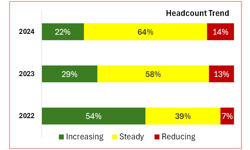Greece and Cyprus offer UK publishers an excellent opportunity to increase sales of their titles.
Both countries are key tourist destinations for British holiday makers. The numbers of potential readers make these two markets serious considerations for exporting product during the summer months particularly. But it is important not to forget that the number of expats living in these markets throughout the year is also growing and the pockets of ‘immigrants’ are relatively easy to target. The ‘Brits abroad’, generally, are very important customers for UK publishers and the backbone of their sales in these two markets. However, UK publishers should not forget that there is also a growing population of English-speaking Greek and Cypriot locals who are keen to read about their favourite topics in English language magazines and practice their English vocabulary.
The Markets
Greece has a population of 11 million. Athens and its suburbs are home to 4m, and a total of 1.4m people live on the islands. English is taught from the age of eight in all Greek schools and statistics show that up to 70% of the population have at least a basic knowledge of English.
The population of Cyprus is just over 750,000. Nicosia, on the north / south border, is the capital and has 200,000 inhabitants. The northern part of Cyprus refers to itself as the Turkish Republic of Northern Cyprus but it is not internationally recognised. Southern Cyprus is home to over two thirds of the Cypriot population and is the destination of the majority of British tourists.
The Economy
Like most of Europe and the world, Greece and Cyprus are being affected by the credit crunch and both markets have seen a lull in their economies. Magazine sales have been on the slide in recent years and this year is no different. Both markets are reliant on a healthy tourist industry – particularly on the influx of British holiday makers. With the downturn in the British economy and, consequently, the lack of disposable income, the number of tourists visiting Greece and Cyprus has declined and magazine sales have been affected negatively. A lot has also been made of the ‘wrong kind of tourist’, too. With the increased number of flights by budget airlines to Cyprus and Greece, it has been remarked that tourists are staying for a shorter duration and are spending less whilst they are visiting. Magazine sales have been affected by this development for a number of years now.
Distribution
Publishers from the UK are not spoilt for choice when it comes to choosing a distributor in Greece and Cyprus.
Realistically, there is only one distributor of imported press in Greece – Hellenic Distribution Agency (HDA). HDA imports over 3,500 periodicals from over 40 countries through a network of 3,500 selling points (including airport stores, bookshops, kiosks, supermarkets and tourist shops). The HDA head office is in Athens but they also have fifteen regional depots on the mainland and the main islands servicing the rest of the country.
In Cyprus, Hellenic Distribution Agency (Cyprus) and Kronos Press Distribution are the two options available to publishers from the UK to distribute their product. HDAC handles over 1,800 titles from 15 different countries and has 38 daily morning delivery runs accessing all press points directly. KPD handles the vast majority of Cypriot Press and imported Greek press and has started to distribute some British newspapers, too. Both companies serve all the selling points in the Cypriot market.
Unlike the UK market, neither Greece nor Cyprus has a wholesale system, with the distributors supplying retailers directly.
Retail
There are approximately 10,000 retail outlets selling magazines in Greece, of which, only 3,500 take imported press during peak tourist season. Most of the retailers are independently owned and consist of airport stores, bookshops, press agencies, supermarkets, kiosks and tourist shops. There is only one press chain of any note in Greece – that being HDA’s own Newsstand network. There are forty Newsstand stores of which eleven are in Athens, another sixteen are strategically located on the mainland, ten are on the islands (four in Crete) and three are in Tirana, Albania. Each one aims to offer the widest range of international press in a friendly environment. Their statistics tell us that 20,000 people shop at Newsstand stores on a daily basis and they are evidently very important outlets for press distribution. Newsstand stores represent around 15% of total magazine sales in Greece and nearly 20% for imported press.
There are approximately 1,350 press outlets in Cyprus, over 90% of which are privately owned. The few small chains that do exist in the Cypriot market do not stock much press at all. Local customers of newsagents are very loyal and usually have a good relationship with the retailer. Chains are, generally, more impersonal - which is something the locals do not like and try to avoid.
Regional and Seasonal Sales
In addition to the local English-speaking population, UK publishers will be very keen to realise the potential sales offered during the tourist season between April and October. Greece has approximately fifteen million visitors per year, with over three million tourists coming from the UK. Although the tourists are spread across the entire Greek islands and some of the mainland, principal destinations include Corfu, Kos, Crete and Rhodes.
In 2006, over 1.3m Britons visited Cyprus (mainly Southern Cyprus – the Greek part) and 85% of them visited between April and October. 90% of the tourists stayed in the areas around Pafos, Ayia Napa and Limassol. In addition, there are 40,000 British citizens living in Cyprus on a permanent basis - over 80% of them live in the Pafos area, which makes targeted distribution easier.
Competitive Advantage
Because UK publishers are competing for the readership of a limited number of English speaking locals and of the cost-conscious British tourist, they have to consider a number of things including pricing, promotions and added value (such as covermounts and supplements) very carefully to enhance their product, just as they do in the UK.
* Promotions. Apart from the main Newsstand chain in Greece, which has regular promotions to offer publishers, it is difficult to organise a promotional campaign in either Greece or Cyprus due to the nature of the outlets that display the majority of UK titles. The best way to promote in Greece and Cyprus is by cutting the price or by adding value to the magazine.
* Price. The average price of a UK publication in Greece and Cyprus is between €8.50 and €9.00, which equates to £6.50 - £7.50 for a magazine. It is important for UK publishers to seek information and advice from their export distributor with regard to pricing their product competitively in export markets. It is true that imported titles are considered to be premium products and therefore people do expect to pay a higher price for them, however, there is a limit to what people are willing to pay. UK magazines can gain readership from other imported titles by simply funding a lower, more competitive price - giving up some remit to enable the local distributor to lower the local price. Highlighting the low price with a sticker will help the magazine catch the reader’s attention.
* Added Value. Publishers are also advised to include supplements and covermounts on export copies as well as on UK copies to make their magazine more attractive to the reader. Consumers are price-conscious and, rather than being brand-loyal, want the most for their money. Summer themed covermounts like flip-flops, sarongs and sunglasses work very well indeed.
* Local language. Publishers may also consider translating their titles into Greek so that they can reach a much larger readership. However, there is a large element of risk (and also great reward!) involved here and publishers should, again, seek information, advice and recommendations from their distributor.
Time Sensitivity
Time sensitivity is not a huge issue as most UK titles are on sale across Greece within ten days of the UK on-sale date. However, weekly publications may want to consider flying copies to certain islands to maximise their sales in the tourist areas. HDAC fly most of their UK product in to Cyprus on a weekly basis.
It is interesting to see that since some UK newspapers have started to print locally in Greece on a daily basis, their sales have increased greatly.
Returns
Something for publishers to bear in mind, however, is that the Greek and Cypriot distributors have up to five months from the UK on-sale date of a monthly issue to claim their returns. Therefore, publishers will not receive a decent steer on sales for a particular issue until at least three months after the UK on-sale date, by which time two more issues have been distributed and another is being finalised. However, this does not seem so bad when compared to the length of time to receive sales information from long-haul markets.
Conclusion
In summary, UK publishers should look at Greece and Cyprus as a potentially strong market for overseas sales... but, realistically, only during the summer season. UK tourists are present from April to October and publishers need to capitalise on the numbers. However, the publisher also has to realise that they are not going to supply (or sell) as many copies in these markets as they do to an English-speaking market. During the winter, opportunities to sell large numbers are very limited, despite the English speaking populations in each market. To give publications the best chance of selling, they should be priced competitively and made as attractive as possible to the consumer.
Finally, publishers should always consult their export distributor for information and advice on distribution to overseas markets, be it in Greece, Cyprus or anywhere else.
FEATURE
Summer hotspots for magazine sales
Every summer, millions of our precious readers disappear off on holiday. Many of them head for the beaches of Greece and Cyprus to soak up the sun. Lolling on their sun loungers and clearly in need of something to read, this group of sun worshippers is an attractive market for publishers. Graeme King looks at the local market and what publishers need to do to maximise sales.










